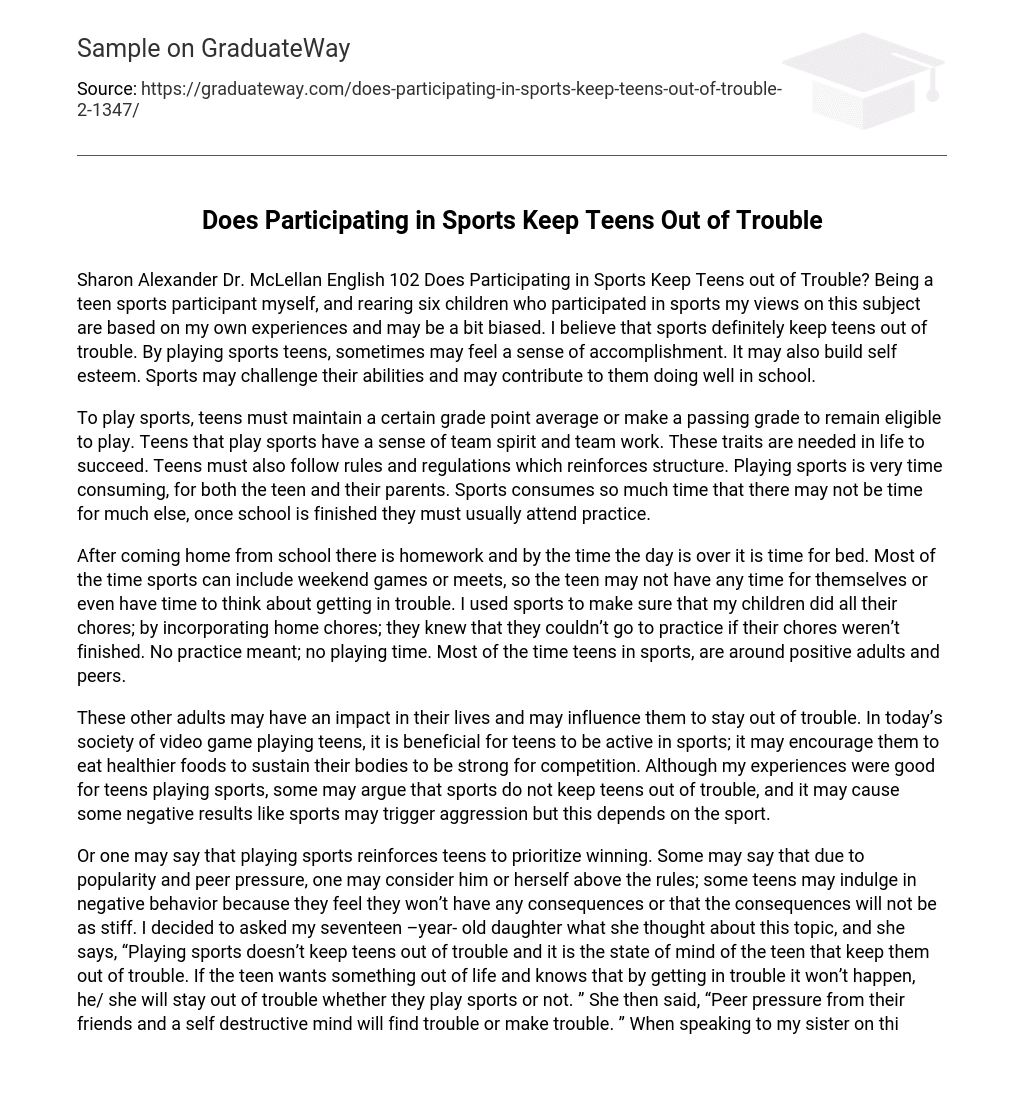Based on my personal experiences as a teenager involved in sports and as a parent to six children who have also participated in sports, I hold the belief that engaging in sports is essential for keeping teenagers out of trouble. Sports can offer a sense of accomplishment and potentially improve self-esteem. Additionally, they can present challenges that enhance teenage skills and possibly contribute to academic achievement.
In order to participate in sports, teenagers must either maintain a certain grade point average or achieve a passing grade. Engaging in sports helps foster team spirit and develop teamwork abilities, which are essential for success in life. Furthermore, involvement in sports requires adherence to rules and regulations, promoting structure. The commitment to sports requires significant time from both the teenager and their parents, leaving little opportunity for other activities as practice typically takes place after school.
After school, there is homework and bedtime. Sports often involve weekend games or meets, leaving little time for teens to themselves or to get into trouble. I used sports as a way to ensure my children completed their chores. By including home responsibilities, they knew they couldn’t go to practice without finishing them. No practice meant no playing time. Being involved in sports also means spending time with positive adults and peers.
These other adults can have a positive influence on their lives, guiding them to stay away from trouble. In the modern world where teenagers are often engrossed in video games, engaging in sports can be advantageous for them; it can motivate them to consume nourishing foods to maintain their bodies’ strength for competition. While my own experiences with sports were beneficial for teenagers, others may contend that sports fail to deter them from getting into trouble, and in some cases, sports may even foster aggression, though this varies depending on the type of sport.
Opinions vary regarding whether involvement in sports can cause teenagers to prioritize winning. While some argue that it does, others propose that popularity and peer pressure may lead individuals to believe they can ignore rules without facing consequences. Consequently, certain adolescents may exhibit negative behavior under the assumption of no repercussions or lenient punishments. To gain insight into this issue, I consulted my seventeen-year-old daughter who stated, “Merely participating in sports doesn’t prevent teenagers from getting into trouble; ultimately, their mindset determines the likelihood of engaging in problematic behavior.”
If a teenager wants something in life and understands that getting into trouble will hinder their desire, they will avoid trouble regardless of their involvement in sports. Additionally, peer pressure from friends and a inclination for self-destruction can steer teenagers towards trouble. When discussing this matter with my sister, she claims that engaging in sports does not prevent teenagers from getting into trouble. In fact, it is during this phase when many teens are introduced to substances like steroids to improve their muscle growth and physical capabilities.
Although I have had positive experiences with teenagers participating in sports in the past, I now acknowledge certain drawbacks. To fully understand this issue, it is essential for me to research and analyze relevant statistics. This includes examining other instances of negative experiences as well. Additionally, I am curious about how many others share my perspective and how many individuals have faced unfavorable outcomes regarding their teenagers and sports. It is equally important to consider those who have experienced both positive and negative results.
Works Cited
- Reese, Shanequa. Personal interview. November 10,2011 Jones, Christina. Personal interview. November 10, 2011





